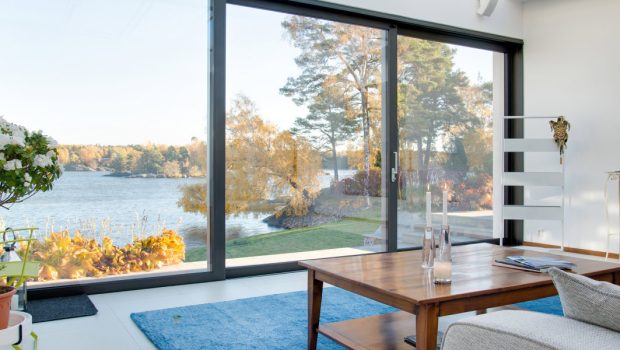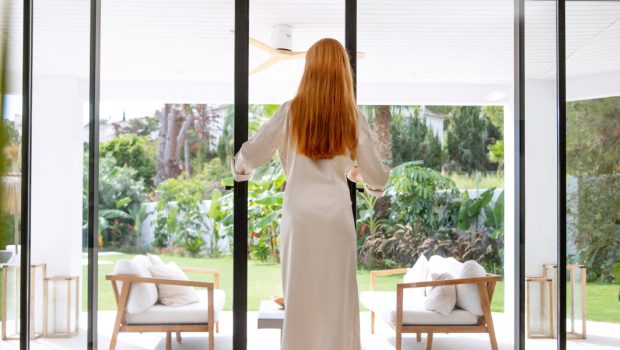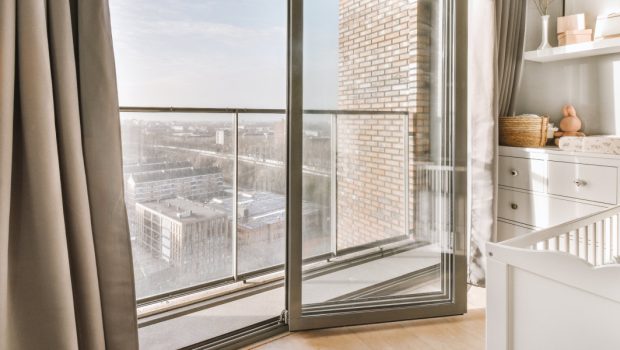If you’re looking for comfort, energy efficiency and a touch of style for your home, look no further! In this guide, we’ll show you the importance of choosing the right windows for your home, the benefits of efficient windows, the different types of windows available on the market, the most common materials, the ideal features to consider and the importance of consulting a specialist when making this decision.
The importance of choosing the right type of windows
Windows are very important structural components in a building, performing not only an aesthetic function, but also playing a fundamental role in the energy efficiency and comfort of the home. From this perspective, it is essential to select them with care, always considering the most appropriate material for each situation and the support of a consultant specialized in the subject.
Benefits of efficient windows
Efficient windows go far beyond aesthetics, offering a series of benefits that can transform your home. The main benefits are:
Greater thermal comfort: efficient windows have better sealing and insulation, helping to keep the internal temperature stable, avoiding excessive heat in summer and heat loss in winter, providing a more comfortable environment in all seasons.
Greater sound insulation: the right combination of frame, hardware and glass in efficient windows ensures high acoustic comfort, reducing the entry of unwanted external noise and creating a peaceful and quiet environment inside the home.
Increased security: efficient windows made with the right components increase security against burglaries in our homes.
Better health and well-being: windows not only provide thermal and acoustic comfort, creating a pleasant environment, but they are also essential for sealing off the passage of air and water, preventing potential pathologies due to water infiltration, humidity and the appearance of mold.
Greater sustainability: efficient windows are more sustainable because they reduce energy consumption, take advantage of natural light, reduce the need for heating/cooling devices and have a longer lifespan when compared to traditional windows.
Types of windows
There are several window options on the market, with a variety of frames, glass, hardware, openings and finishes. Each combination of these materials has specific advantages in terms of functionality, aesthetics, insulation and ventilation.
With this diversity of options, it is necessary to rely on expert guidance to find the ideal solution that meets the specific needs of your home. Livo Consultants are ready to help you make this choice, taking into account the characteristics of your home, location, objectives, budget and, most importantly, your idea of what a perfect home is.
Be sure to schedule a free consultation with our consultants, who will guide you in the right direction and are ready to make this process easier and more efficient.
Scheduling a visit from Livo Consultants is simple: click here!
Types of opening
When it comes to the type of opening, it’s important to choose the most functional option for the use and the desired aesthetic. The most common types of opening for efficient windows are:
Oscillating casement window
Oscillating casement windows offer flexible ventilation options and facilitate cleaning due to their vertical and horizontal opening.
Tilt-and-Turn Window
Tilt-and-turn windows open inwards or outwards from a central axis, allowing a certain amount of control over the air flow. However, it is important to note that the opening is limited, which can make it difficult to clean the outside of these windows.
Sliding Windows
Sliding windows slide horizontally, saving space, and are easy to use, offering a combination of good ventilation and efficient sealing.
Casement windows
The most traditional, full-opening casement windows offer good ventilation, light penetration and easy cleaning, but take up space both inside and outside.
Glass construction
There are different options for the composition of the glass used in efficient windows. The choice will depend on the specific thermal and acoustic insulation, security and energy efficiency needs of each home. The most common types of glass on the Portuguese market include the follow:
Single-glazed windows
Most houses in Portugal still have single-glazed windows, made up of a single layer of glass with low energy performance.
Double-glazed windows
Double-glazed windows offer thermal and acoustic insulation due to the two layers of glass, providing comfort, energy savings and a significant reduction in noise. The use of double glazing in windows is currently the most widely adopted solution for new purchases.
Triple-glazed windows
Triple glazing, like double glazing, is designed to improve the thermal and acoustic insulation of windows by adding an additional layer of glass. Although they are a more efficient option, it is important to bear in mind that they are also more expensive.
Frame (or profile)
The material of the window frame affects aesthetics, durability, thermal and acoustic insulation, weather resistance and maintenance. The best-selling materials today are PVC and aluminum, replacing older and less efficient products such as wood and iron. Each material has advantages and disadvantages. Choosing the right window frames is a decision you should make carefully and consciously, as it represents an investment in your comfort and well-being.
PVC windows
Made from a durable material that is resistant to weather conditions, condensation and heat loss, PVC windows offer an additional advantage: superior thermal and acoustic insulation compared to plain aluminum windows. In terms of value for money, PVC stands out as the most advantageous option.
Aluminum windows
They are light, resistant and easy to install. Their main advantages are their durability, resistance to corrosion and minimalist style. However, it is important to note that aluminum is a conductor of heat, which can compromise thermal insulation. To ensure greater efficiency, it is necessary to use additional features, such as double glazing and thermal cutting, which makes them more expensive to manufacture.
Wooden windows
Wooden windows have a classic aesthetic and are efficient at thermal insulation but require regular maintenance due to their sensitivity to humidity. In addition, wood can be more expensive compared to other materials such as aluminum or PVC. It’s important to consider both the natural charm and sustainability as well as the need for maintenance and costs involved when opting for wooden windows.
Iron windows
Iron windows have a robust and durable aesthetic and are less sensitive to humid climates than wooden windows. However, iron is a good thermal conductor, which can have an impact on the room’s thermal insulation. In addition, iron windows can be heavier and require corrosion protection to prevent damage over time.
Ideal characteristics of an efficient window
When selecting windows for your home, it’s important to consider some essential features.
Thermal and acoustic insulation
By taking thermal and acoustic insulation into account when choosing windows for your home, you’ll gain more comfort, save energy, save on your energy bill and enjoy a more peaceful and pleasant environment.
Durability and resistance
Durable and resistant windows are able to withstand climatic and environmental conditions over time without suffering significant damage. This includes resistance to corrosion, deformation, impacts and exposure to the sun’s rays. By opting for durable and resistant windows, you ensure that they will have an extended lifespan and require less maintenance over time.
Safety and security
When selecting windows for your home, safety and security are essential features to consider. Efficient windows offer extra protection against burglary and help protect the home and everyone in it. In addition, they seal off the passage of air and water, preventing potential pathologies due to water infiltration, humidity and the appearance of mold.
Aesthetics and design
Efficient windows not only offer functional benefits, such as thermal and acoustic insulation, but can also contribute to the overall aesthetics of the home. There are a variety of styles and designs available, so you can choose a style that harmonizes with your personal taste.
Class
The CLASS+ label tells you the energy performance of the windows, and a higher rating means greater energy savings, as well as better thermal and acoustic insulation. It is therefore recommended to look for companies that have adhered to the CLASS+ label.
The importance of consulting a specialist
When investing in efficient windows, it’s essential to get expert advice.
And when it comes to finding the best solution for your home, Livo is the right choice. Our expert consultants have the technical knowledge to assess your needs and offer suitable solutions, with the aim of getting the best return on your investment. What’s more, when you choose Livo, you’ll be guaranteed a quality service, with after-sales assistance and support throughout the process.
Schedule a free consultation with our consultants and let us guide you towards a happier home. We’re with you every step of the way.
Shall we arrange a Livo visit?
Conclusion
By considering the benefits, the different types of efficient windows and the materials available on the market, as well as the support of a consultant for your project, you will be able to make an informed choice that will add value to your home and improve your quality of life. This way, you’ll be sure of a long-lasting investment that will pay for itself in a short space of time, guaranteeing many years of savings and comfort.




